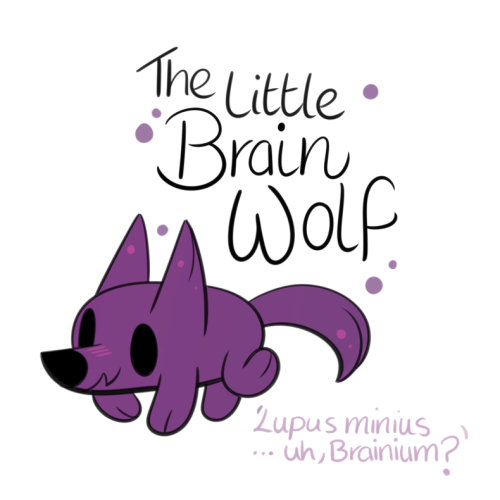Possiblyfromorion - M Kay

More Posts from Possiblyfromorion and Others

Leo Tolstoy, Anna Karenina
The Types in a Nutshell
ENTP: stubborn yet agreeable
ENFP: selfless yet independent
ENTJ: hypocritical yet righteous
ENFJ: outspoken yet thoughtful
ESTP: reckless yet careful
ESFP: focused yet active
ESTJ: demanding yet mellow
ESFJ: sympathetic yet strict
INTP: logical yet impulsive
INFP: friendly yet distant
INTJ: two-faced yet steady
INFJ: perfectionist yet negative
ISTP: domineering yet peaceful
ISFP: narrow yet resourceful
ISTJ: isolated yet popular
ISFJ: relaxed yet persistent

“Trying to maintain a pleasant state and avoid an unpleasant state is actually the cause of sorrow. When you stop resisting, you see that what seems frightening is actually the absolute beauty of reality. When you see that everything is a momentary display of reality, then you stop resisting it. Resistance hurts, only every single time. Love is the state of nonresistance.”
— Adyashanti
Many people have tried to attribute my thirst for knowledge as Ti based, but I am fairly confident that I am an INFP. Would you say that my thirst for knowledge and curiosity relates more to my Ne and needing to understand multiple perspectives? And would you say that is a common error some people make with typing based of stereotypical factors, thinking they are Ti just because they like researching/understanding things fully when that's not really how they reach conclusions?
It’s a common misconception and a common reason why Ns mistype. “Thirst for knowledge” is easily misconstrued when one does not consider the REASON or motivation behind it, and you must understand cognitive motivation to identify functions correctly. In everyday speech, the phrase carries the connotation of someone who likes to learn for the sake of learning or someone who is intellectually curious for the sake of valuing knowledge in itself -> this is NOT Ti. Ti is a judging function that systematizes information, not a data gathering function, it wants to construct unambiguous and fact-based judgments about the world, it wants to create very elegant and precise rules and principles on which to make confident, independent decisions. Therefore, Ti wants to “figure something out” but not for the sake of “just knowing”, rather, the purpose is very specific in wanting a very particular framework of knowledge to navigate particular situations with confidence.
“Thirst for knowledge” is more likely to arise from the intuitive functions because they are data gathering perceiving functions. Ns are more likely or have a greater urge than Ss to thirst for knowledge because they value knowledge that goes beyond what is readily known. Therefore, INFPs and INTPs both tend to have a thirst for knowledge because of high Ne, INPs tend to be more intellectually curious than ISPs. And Ti dom descriptions are often skewed towards INTPs. STPs can be intellectually curious but they are usually more focused in their interests (Ni) and concrete in terms of wanting to build up a physical, practical, or hands-on skill/ability (Se). High N functions often force people into being what appears to be “analytical” because they flood the the mind with so much abstract information that one is often forced to sort through it, however, it is the judging functions that do the actual sorting and analyzing, even though perceiving and judging functions often feel like they work seamlessly together, especially when both are pointed in the same i/e direction. When Ns read the Ti description, they wrongly assume that wanting to “figure out how something works” means the same thing as “thirst for knowledge” because that’s how they want to interpret it for themselves. NFs are often unconsciously insecure about feeling intellectually inferior, so when they read the Ti description, they want it to fit and even twist it to fit. NFJs in particular often confuse Ni and Ti (I think almost every week I get at least one NFJ who believes they are T).
“I’ve found that growing up means being honest. About what I want. What I need. What I feel. Who I am.”
—
Epiphany

“The virtue of a man ought to be measured, not by his extraordinary exertions, but by his everyday conduct.” – Blaise Pascal

After The Storm ~ Yegor Malinovskii
Roly Polies Came From the Sea to Conquer the Earth
Pill bugs. Doodle bugs. Potato bugs. Wood Shrimp. Whatever you call them, there’s something less creepy about these critters than other insects. Maybe it’s because they’re not insects at all.
via: Deep Look

















So I doodled one of these then instantly became obsessed with the idea and can’t stop and have been spamming twitter with brain wolf facts sorry everyone.
-
 asimozouzouna liked this · 4 months ago
asimozouzouna liked this · 4 months ago -
 alwayselusivelove liked this · 7 months ago
alwayselusivelove liked this · 7 months ago -
 thedepressedpelican liked this · 7 months ago
thedepressedpelican liked this · 7 months ago -
 heat-and-hot-water liked this · 7 months ago
heat-and-hot-water liked this · 7 months ago -
 elle-mood reblogged this · 7 months ago
elle-mood reblogged this · 7 months ago -
 elle-mood liked this · 7 months ago
elle-mood liked this · 7 months ago -
 nothing-to-see-here-bud liked this · 7 months ago
nothing-to-see-here-bud liked this · 7 months ago -
 chaosthedemon liked this · 7 months ago
chaosthedemon liked this · 7 months ago -
 33ff33 liked this · 7 months ago
33ff33 liked this · 7 months ago -
 hellishfig reblogged this · 7 months ago
hellishfig reblogged this · 7 months ago -
 hanna-lulu liked this · 7 months ago
hanna-lulu liked this · 7 months ago -
 macbethwitches liked this · 7 months ago
macbethwitches liked this · 7 months ago -
 morceaudekira reblogged this · 7 months ago
morceaudekira reblogged this · 7 months ago -
 morceaudekira liked this · 7 months ago
morceaudekira liked this · 7 months ago -
 vhscorp liked this · 7 months ago
vhscorp liked this · 7 months ago -
 cursedbagel liked this · 7 months ago
cursedbagel liked this · 7 months ago -
 wizardhugs liked this · 7 months ago
wizardhugs liked this · 7 months ago -
 gaoushomb-allisearians liked this · 7 months ago
gaoushomb-allisearians liked this · 7 months ago -
 saxonratliffs reblogged this · 7 months ago
saxonratliffs reblogged this · 7 months ago -
 i-find-the-beauty-in-chaos reblogged this · 7 months ago
i-find-the-beauty-in-chaos reblogged this · 7 months ago -
 diavolaangelica reblogged this · 7 months ago
diavolaangelica reblogged this · 7 months ago -
 diavolaangelica liked this · 7 months ago
diavolaangelica liked this · 7 months ago -
 aalyshia liked this · 7 months ago
aalyshia liked this · 7 months ago -
 glitteronin liked this · 7 months ago
glitteronin liked this · 7 months ago -
 robbin-da-bank liked this · 7 months ago
robbin-da-bank liked this · 7 months ago -
 danykha reblogged this · 7 months ago
danykha reblogged this · 7 months ago -
 danykha liked this · 7 months ago
danykha liked this · 7 months ago -
 kml9705 liked this · 8 months ago
kml9705 liked this · 8 months ago -
 eatmyshortyshorts reblogged this · 8 months ago
eatmyshortyshorts reblogged this · 8 months ago -
 eatmyshortyshorts liked this · 8 months ago
eatmyshortyshorts liked this · 8 months ago -
 magicgiraffes09 reblogged this · 8 months ago
magicgiraffes09 reblogged this · 8 months ago -
 magicgiraffes09 liked this · 8 months ago
magicgiraffes09 liked this · 8 months ago -
 lnlygirl liked this · 8 months ago
lnlygirl liked this · 8 months ago -
 ipusingularitae liked this · 8 months ago
ipusingularitae liked this · 8 months ago -
 bomoboo liked this · 8 months ago
bomoboo liked this · 8 months ago -
 the-lushs-one-always liked this · 8 months ago
the-lushs-one-always liked this · 8 months ago -
 littletornado liked this · 8 months ago
littletornado liked this · 8 months ago -
 death-s-head-moth liked this · 8 months ago
death-s-head-moth liked this · 8 months ago -
 juniebugsss reblogged this · 8 months ago
juniebugsss reblogged this · 8 months ago -
 truemacabrekidbutoldlike liked this · 8 months ago
truemacabrekidbutoldlike liked this · 8 months ago -
 stimtickle reblogged this · 8 months ago
stimtickle reblogged this · 8 months ago -
 stimtickle liked this · 8 months ago
stimtickle liked this · 8 months ago -
 automaticbananastarlight liked this · 8 months ago
automaticbananastarlight liked this · 8 months ago -
 oww666 liked this · 8 months ago
oww666 liked this · 8 months ago -
 intoxicologist99 liked this · 8 months ago
intoxicologist99 liked this · 8 months ago -
 alrightythenbabe reblogged this · 8 months ago
alrightythenbabe reblogged this · 8 months ago -
 gs455 reblogged this · 8 months ago
gs455 reblogged this · 8 months ago -
 gs455 liked this · 8 months ago
gs455 liked this · 8 months ago
